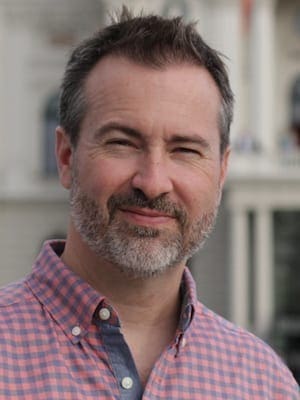Genocide in Nigeria has escaped the radar of most North Americans.
It garnered little attention here when it happened 50 years ago. It’s the subject of our new documentary, “The Disturbances.”
When we – Robert Parham and I – began production on the documentary in 2014, I had no prior knowledge of the events whose reconstruction – from the perspectives of the missionaries – would dominate my professional life for two years.
My ignorance contrasted with Robert’s experience: He lived it, perceiving the atrocities and their widening rings of affect through the eyes of a seventh-grade missionary kid (MK).
For the last couple of years, I have reflected on the source of ignorance such as mine. Why hadn’t I heard about what happened in Nigeria? After all, I grew up in the missions-oriented Southern Baptist church and culture.
Reasons stack upon reasons for why these atrocities have stuck in the memories of missionaries and their children, yet failed to find a place in the minds and hearts of churchgoers and others.
We explore some of these reasons in “The Disturbances,” with an emphasis on why the missionaries and MKs didn’t talk, didn’t tell.
Right now, though, I want to emphasize another angle to this silence: why others didn’t hear. There’s a difference between not telling and not hearing.
Talking with dozens and dozens of missionaries and MKs about their witness to genocide, you begin to understand some of the reasons why a silence enveloped this missionary experience of 1966.
But some of these reasons had less to do with the tellers and more to do with the hearers.
Carrie Robison Young was an Assemblies of God missionary kid in 1966. She witnessed the carnage firsthand while giving aid to survivors at the police compound in Jos, Nigeria. When she returned to the United States a few years later, she now recalls a few attempts at sharing her experience.
“There were certain youth groups or church groups that I might talk with,” she told us. “But that didn’t last for very long.” Why? She says the events in Nigeria were not “really understood.”
“I couldn’t understand why, when I would talk about some of the things, I would get a blank stare or a stifled yawn,” she said.
“I think that, in that time and place, there wasn’t much interest because there was not much information about it,” Young said. “At least that’s what I like to think is the reason.”
To be sure, news about Nigeria was typically edged out by other reporting: Vietnam; U.S. race relations; the Apollo space program; a USC running back named O.J. Simpson; the candidacy of Ronald Reagan for California governor; another Billy Graham Crusade.
Southern Baptist missionaries Bill and Audrey Cowley lived through 1966 Nigeria. They have their own compelling story about what happened. We tell part of it – who could tell it all? – in the documentary.
Bill Cowley told us, “There has been common talk that an African nation only gets attention if there is a threat of loss of oil or other products from Africa that the rest of the world wants. But otherwise, it’s not news.”
In other words, the hearers have really exhibited a lack of concern and interest – then and now.
John Price Jr. was a missionary kid from the Sudan Interior Mission. He, too, offered aid at the Jos police compound and saw things no one should see. I value the courage he and other MKs exhibited in talking to us about some of their teenage memories.
But I have to think that another tragedy compounds the one that put thousands of wounded people at his feet.
Price said, “When you come back to the States and your life experience is a whole lot different having grown up in Africa, you don’t relate to TV shows and things that they know here. But neither do they relate to what your life was about. So you just make the assumption that they’re not really interested in that, so why bother to tell them? Because they might not find it interesting.”
I wish I could say that Price’s assumption has been incorrect.
When Robert asked Herman Scholten, a missionary to Nigeria from the Christian Reformed Church, why he had never talked publicly about his role in evacuating people to safety, he said:
“I don’t know if anyone was interested. I don’t recall, after all these years, I don’t recall anyone ever asking me about the time.”
Whoever has ears, let them hear.
 Cliff Vaughn is media producer for EthicsDaily.com. You can follow him on Twitter @cliff_vaughn.
Cliff Vaughn is media producer for EthicsDaily.com. You can follow him on Twitter @cliff_vaughn.
Editor’s note: You can learn more about “The Disturbances” here. You can preview and pre-order the film on DVD here, and preview and pre-order the companion book here.

